Growing up as the first of five children in a disciplined home in Enugu, Managing Director of Lights and Heights Holding Limited, Ifeanyi Aneke, learnt early that leadership begins with responsibility. As the eldest, he understood that every action could influence those who looked up to him, a lesson that would later shape his values and leadership style. Today, as a tech entrepreneur and family man, Aneke says the desire not to stray still guides his decisions. Beyond boardrooms and innovation, he reminds himself that family means everything, the anchor that keeps him grounded in an ever-demanding business world. The entrepreneur also speaks about the inspiration behind his company’s recently launched StoneCircle, a new safety and community management app under its tech subsidiary Limestone. Designed to enhance personal safety, improve estate management, and foster neighbourhood collaboration, StoneCircle aims to redefine how Nigerians experience security and community living. Sunday Ehigiator brings the excerpts:
T
ell us how your upbringing and your early experience shaped your value and approach to leadership in today’s competitive business environment?
I grew up in Enugu, Nigeria, in a family of seven: my dad, mom, and five kids. I’m the first of them all. The first child, and that automatically put me in a leadership situation. My dad was a very strict disciplinarian. So, I’ve had to grow up in an environment that required a lot of discipline. And, you know, that’s values being learnt, which are some of the things we’re talking about now. So, I think to a large extent, I’ve always been trying to be like the role model for the family, being the first child and trying to lead all of those behind me. Being the first child, I must agree that it does contribute to the burden of knowing that you are the first sheep in the line of other sheep passing. If you stray, everyone will most likely stray. So that definitely contributes to some of the leadership skills I exhibit today.
What role has your family played in your career journey and how do you balance the demand for leadership with maintaining strong family connections?
It is an ongoing struggle, I would say, but it’s one that we will keep improving on. It’s something that I have to always remind myself that, at the end of the day, family is the most important thing. Yeah, it’s an ongoing struggle, is what I would say.
How do you unwind and keep burnouts at bay?
I’m kind of a nerd, in a way, so the kind of things that excite me are, I watch movies, right? It used to be mainly foreign movies, but lately I started enjoying a lot of YouTube movies these days. Omoni Oboli does really good movies on YouTube. Yeah, so I do watch movies. I’m a writer as well, so I like good stories. So, I read as well. Yeah, those are kind of the things that I try to unwind with. And sometimes I try to get out there and meet with friends. I used to do a lot of football before, but now, I’m trying to get back into the game. I don’t support any club, unfortunately. I used to support Chelsea a long time ago, because I had friends that were around then that were supporting Chelsea. But football is not something I’m passionate about. Unfortunately, I watch Nigerian matches, but any time I watch a Nigerian match, they lose. So, as a patriot, I stopped watching so that we could win.
In your view, what defines great leadership today, and how do you nurture that culture among your team at LimeStone?
We do have a couple of core values in light and height. Limestone, being a subsidiary of light and height, adopts the same core values. And I think it’s actually 12 of them. One of them is what I will just mention, because I think it sums it all up. And that is ownership. I believe ownership is the most fundamental leadership principle any leader should have. And what ownership means is that you understand that this belongs to you and you’re responsible for making sure that it works. That’s responsibility. And so the story I like to tell is a story about a woman. Her child is sick, and it’s raining and the car has broken down, but the child is very sick and the child might die. That woman understands that she owns the responsibility of saving that child. She can’t say, “it’s raining so there’s nothing I can do.” She can’t say, the car is broken down, there’s nothing I can do. A real mother would shout the entire neighbourhood, down till someone comes to pick her up to take the child to the hospital. Or take an umbrella and carry that child and walk in the middle of the night to find a solution. Ownership is about understanding that everything rests on you doing the very best you need to do to make sure that something works, whatever that is. So that to me is the very fundamental core principle of leadership that we enshrine in Limestone.
Now, tell us about Limestone?
Limestone is a community management application. Let me say, let me put it this way. Limestone is a technology company that has built StoneCircle, Stone Community and StoneCircle and Stone Security, which is a community management set of apps that is used to really help people to stay safe and also to be able to manage their finances better. From there we also have StoneCircle, which we recently launched. StoneCircle is our play in the BTC market. It is an app that allows people to be able to stay safe. Once you download the app, you will be able to use it to record events like incident reporting. If you have an incident, you can also raise a panic and then in your circles, you will be notified about that incident, and they can come to your aid immediately. It’s also a companion app for people who are living in residential communities. You can use it independently, but you can also use it to interact with your communities if you are living in a residential community.
As a security expert, how do you assess personal and community security in Nigeria, and what’s the biggest gap?
I think there’s a very big gap with our incident response system in Nigeria. It’s almost non-existent. We don’t have a functional incident response thing. If you go to more developed countries, you’d hear people say 911, they call 911 and then immediately in a few minutes someone is there to save you. We don’t have that, a real functional one in Nigeria. StoneCircle is our own way of innovating around the limitations of what we have. It makes it easy for you to raise a panic, to call your own 911, but get people that are around you to come in to rescue you in that situation.
What are the key features and the functionalities of StoneCircle?
One of the key features that I’ve seen people love a lot about StoneCircle is the moments feature. The moments feature allows people to capture incidents that are happening around them and then post it on what we call their moments. Anybody that is around that area or that is following them would get to see those incidents. Initially, it was originally released as something that would help people to post security incidents around them, but people are beginning to use that to post other kinds of moments as well. During the period, we are running this internally. That’s one of the key features, moments. There are also chats as well; with StoneCircle, people can create a circle and chat with people in their circle, but you can also chat individually with any other person that you have within your space. Our chats are end-to-end encrypted, so there’s pure security implementation in the mix to make sure privacy is protected. Beyond that, we now have the panic feature, which is the very center thing that we’re talking about. The panic feature allows you to raise incidents when you have a problem, when you’re having an incident. Say someone is knocking on your door in the middle of the night, or you’re being kidnapped, or whatever is the security incident you’re currently having. It could be a medical incident as well. If you’re having a heart attack, or there is any incident that requires emergency, you can use that. Or there’s a fire incident, or even a flood. Any incident that you’re having that requires the attention of people, you can use the panic alert feature to raise that. This panic alert feature is not just raising an alarm; it’s sending an exact pin location you are in the world to everybody in your circle. So for instance, if someone raises a panic here, everybody who is receiving that panic would first of all need to ring their phone, so they would know that so-and-so person is having this incident. But they will also know the exact location where you are, where you’re having that incident. So it kind of makes the whole thing easier. In fact, in my opinion, it is way better than making a phone call, like the 911 thing.
Because when you call someone and it’s 911, you have to tell the person where you are. And that, when you have an emergency, isn’t the best time; we are very coherent. Imagine trying to describe your location when someone is knocking on your door and you think he’s a criminal.
So it really solves, removes the entire barrier in the incident reporting, and makes the whole lot easier by using these technologies we talked about. The last one there is now the community chat part I talked about. So you integrate with communities. You can use that to pay for your dues in your community, or you can use that to take care of anything that the community needs. You can raise complaints and do any community interaction required. Raise access requests to allow someone to come into the community and things like that.
There are many safety and community apps available today. What sets StoneCircle and the Limestone family app apart?
One of the things that I think is really different from how we have built this app is that a lot of other security apps that you will see out there are things that just sit there, and you would have to remember to use them at any time. We built this in such a way that it is part of your everyday life. And it’s all-encompassing. It’s not something that when you have an incident, you don’t want a situation where you have to start remembering. StoneCircle is something you use every day. You use that to capture moments, watch other people’s moments, and chat with people. So, when you have a security incident, you must remember to use it. In addition to that, is also the fact that StoneCircle is all-encompassing. It has a couple of other things working with it. Today, we’re integrating residential communities. Tomorrow there could be other things we’re adding to it. The design that we have is such that it’s a system that continues to grow and become an all-encompassing solution for every engineer.
Beyond private sector innovations in security, how can government and regulators play a stronger role in building safer, more connected communities in Nigeria?
I think there’s a lot of gap in that area, in terms of how the government is really trying to tackle security in Nigeria. Security needs to be both proactive and responsive. You need both sides. You need to set infrastructure in place to make sure that you are disincentivising security incidents, but you want to be able to respond when the eventuality of any of them occurring. In these two areas, there are gaps. There are things that governments can do. We need infrastructure in place. StoneCircle is available to partner with the governments to be able to help bridge that infrastructure gap. Because what we’ve built is really something that, as I’ve explained, can help solve incident reporting scenarios.
And there are a couple of governments we’re already speaking to at different stages, trying to see how we can integrate it into what they have and build that infrastructure of reporting incidents, and also being able to use that to understand what is going on around their community. So I think those are gaps that we can work with them to cover.
Given the sensitivity of security-related data, what measures has Limestone implemented to guarantee user privacy and protect its platform?
This is something that we have at the very core of the offering that we have. We built this from the ground up to make sure that user data is respected and protected. So we are doing what we call an end-to-end encryption of user data. We don’t even get to see the communication that is going on within the platform. Everything is encrypted. If you send a message or raise a panic or anything, it is encrypted from your device before it is sent across the wire to the other device. There’s no man in the middle, even Limestone, who can see what that data is. That’s one thing that we’re doing. But in addition to that, we also have a lot of a clear privacy policy that explains to users what is obtainable and then allow them to opt out at any point in time when they want to opt out. Like a user can say, hey, I want my data wiped, and we’ll honor those immediately. We don’t sell your data to any third party. We don’t even have that data to sell in the first place. Privacy is something that we are very keen on, and we’re also compliant with the Nigerian Data Protection Regulation (NDPR) regulations at the very basic level. Just for clarity, the notion of if a user asks for data to be wiped, you also comply with that. Of course, if there’s a court order, we are responsible citizens. We’ll have to honour a court order. However, the way it works is that the customer is our customer. If we receive an instruction, in fact, you can go to the app and say you want to delete your account, and we’ll have to delete your account. However, if a court order says that we should provide data to them, and there’s an order from the court, we obviously would have to honour that. But if we have lost the data because the user has already deleted it, of course there’s nothing we can do about that. But remember also, the data we’re even talking about now is not the conversation the user has, because we don’t even have access to that. We’re talking about maybe your profile picture, your name, your personal and family information. That is your profile. The geo-location and all of that, is also encrypted. We don’t keep that local. Yeah, so that’s not sitting with us.
Who are your primary targets for StoneCircle, and tell us about your broader suite of products?
The audience is really everybody who needs security, right? And we all do. So it’s everyone. Right now, you need a smartphone to use this. Very soon, there might not be a need for data on that smartphone with zero rating we’re working on. And we’re also speaking on trying to see how we can bring this to future phones as well. That’s down the line with USSD implementation. So it’s really everybody. It’s every Nigerian that we’re targeting for this.
Have you partnered with any stakeholders, security agencies or community organisations to strengthen the adoption and impact of your product?
Yes, certainly. We have a couple of private security firms that are under partnership right now that we’re speaking to. There are certain things that we’re planning, some of which I can’t discuss now because of obvious reasons. We have conversations around some level of partnership where they can begin to provide some extra features on the app, or rather, some extra services on the app. And those could be paid. And then we’re also speaking to government bodies, like I mentioned, to help with that incident reporting thing. If someone is raising a fire alarm, the fire service is notified, and they can come to know exactly where the fire is and things like that. So those are ongoing conversations. Some of them, we have already put pen to paper, like the private firms. But a lot of the government ones, we’re still speaking to them. We haven’t started all that yet.
With Nigeria increasingly embracing digital transformation, what future trends do you see shaping community safety and technology adoption in the next three to five years?
I think the major trend really driving a lot of adoption right now is artificial intelligence. I think we’re going to see a whole lot more about AI integration into technology in the coming months and years. We in Limestone, we are at the very forefront of this. We are using AI in Stone Circle today to be able to manage our incidents to our third party, to our subsidiary. AI is also being used to make sure that the community engagements that we have are also protected. For instance, we’re making sure that we’re monitoring the kind of moments that are posted, for instance, to prevent wrong things being posted on the platform.
Tell us about your background in security and why should the public trust a product that’s coming from you?
I have a very long career in information technology and information security. I have worked for a lot of companies, way before even starting Light on High, LimeStone and all. The last company I worked for was Microsoft, where I was working. I was the cloud solution architect working with Microsoft, what I call the high-potential customers in the Middle East and Africa.
So, these are like the Jumias, the Sterling Bank, some of these top customers. And my job at the time was helping them craft their cloud strategy. And you know cloud is all about security, right? You’re talking about reimagining how you secure these infrastructures as you move them to the cloud. And so, I do have a whole lot of knowledge and experience, not just in security, but in designing secure applications that are compliant and that are also useful to users. Because one thing that is very important is that when you design a secure system, it has to have a human element to it as well. Because if you design a system and it’s super secure, but then the humans are struggling with being able to adopt it, you will struggle. A good example is having a password, insisting that your password should be 20 characters.
If you do that, users would write it down on a piece of paper and paste it on their laptops. Then you don’t have security anymore because now the password is visible for anybody to see.
Also, before Microsoft, I worked with a couple of companies. I worked at Fidelity Bank. I worked in the Stock Exchange as part of application development for about five years. So, I do have all of those experiences during systems like this, way before now.
Finally, what’s next for Limestone?
We are having conversations on some of the things that we can do to be able to get outside the country. We definitely are looking at expansion beyond Nigeria. So it’s kind of two sides. We’re looking at the first vertical integration of adding more features to the app. There are a couple of things we haven’t added yet. Some of them are requested by customers. Some of them are things that we’ve seen that we know the market wants and we’re going to be testing that to confirm that what we are thinking is there. So it’s a bunch of features we are going to be adding to the product in the coming weeks and months. But also, going beyond Nigeria is something we are very open to, and we are exploring that as well.



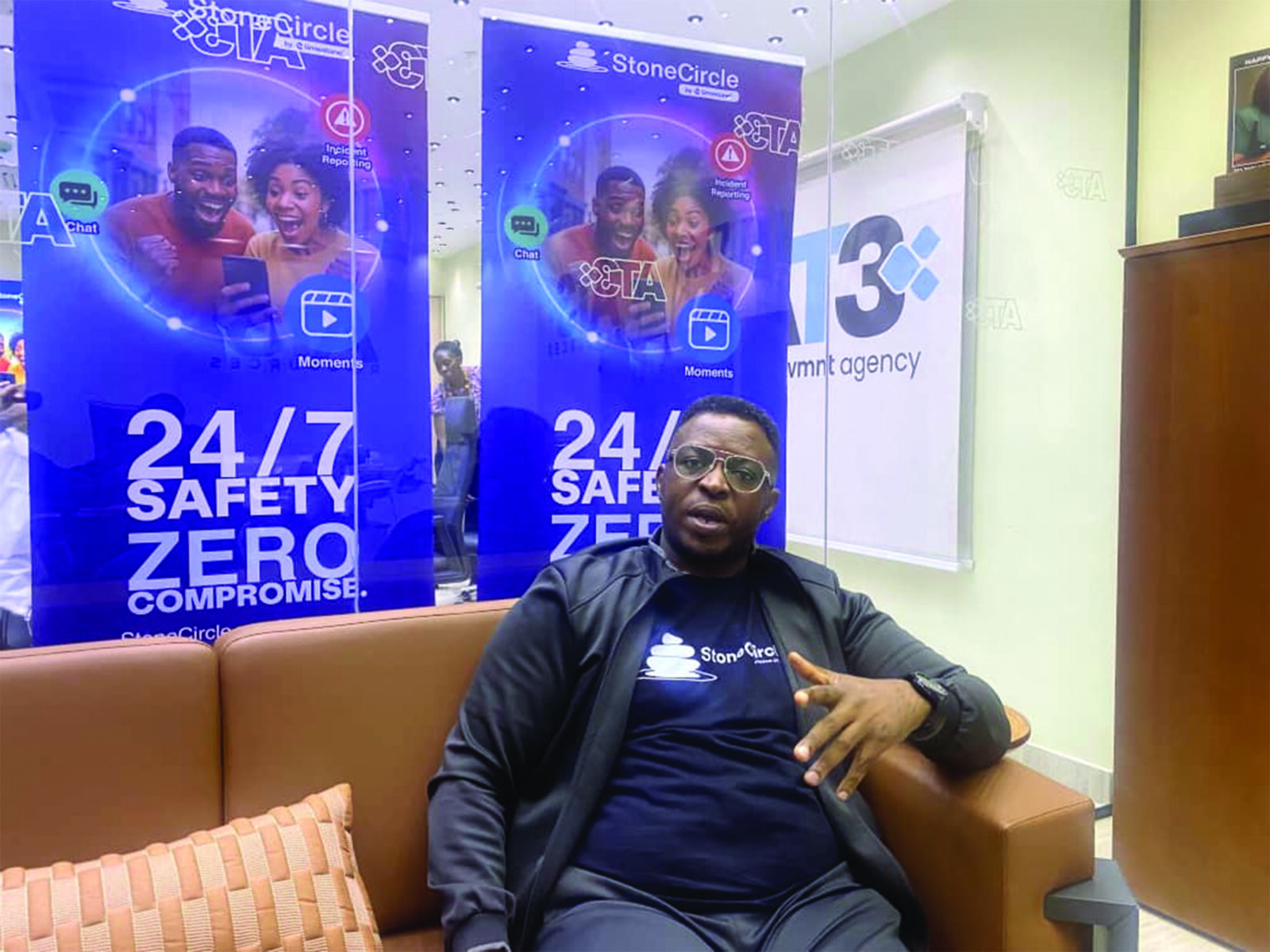





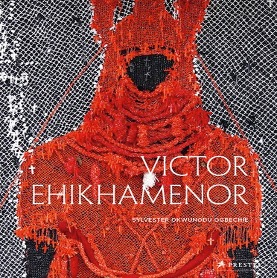
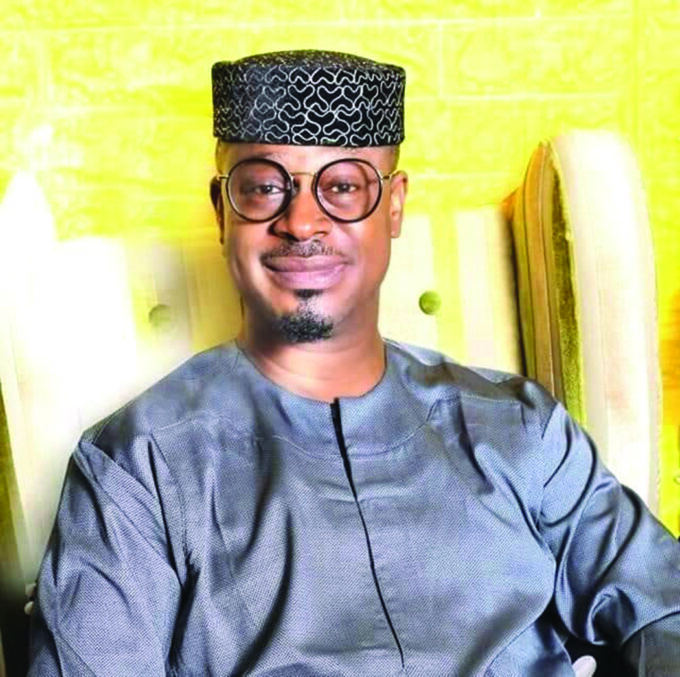
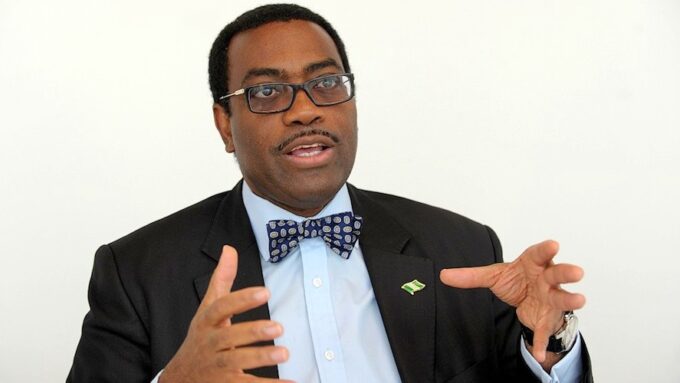
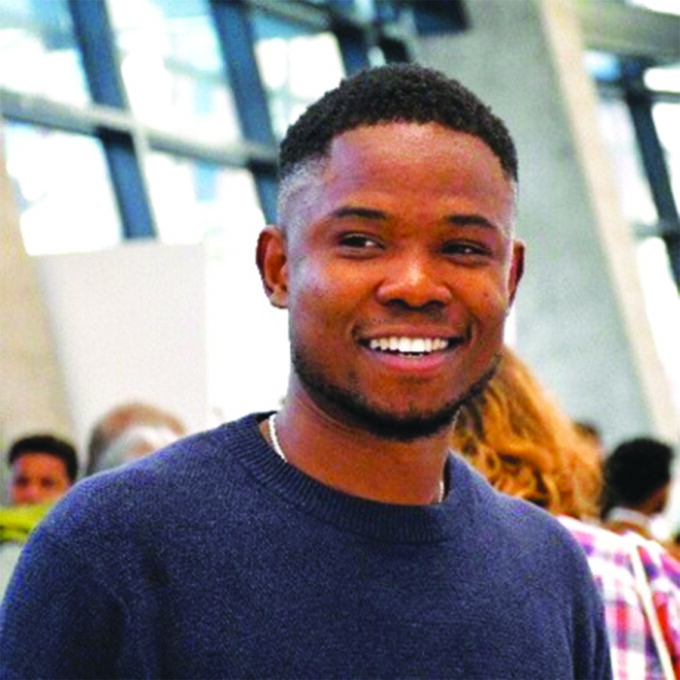





Leave a comment